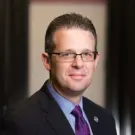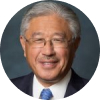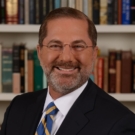Speaker Information
This page contains speaker biographies, conflict-of-interest information, and related work.
Scientific Program
Introduction & Keynote


Aviv Regev, PhD, is head of Genentech Research and Early Development. Formerly, Dr. Regev was Chair of the Faculty and Core Member at the Broad Institute of MIT and Harvard, Professor of Biology at MIT, and a Howard Hughes Medical Institute Investigator. She is founding co-chair of the Human Cell Atlas and a leader in deciphering molecular circuits that govern cells, tissues, and organs in health and their malfunction in disease. She has pioneered foundational experimental and computational methods in single-cell genomics, enabling greater understanding of cell and tissue functions. Dr. Regev is a member of the National Academy of Sciences, National Academy of Medicine, American Academy of Arts and Sciences, and a Fellow of the International Society of Computational Biology. Her many honors include the ISCB Overton and Innovator Prizes, Paul Marks Prize, Lurie Prize in Biomedical Sciences, Keio Medical Science Prize, HFSP Nakasone Award, and L’Oréal-UNESCO for Women in Science Award.
The AI-Powered Evolution of Health Care and Training

Patricia Flatley Brennan, RN, PhD, is currently Emerita Professor, University of Wisconsin-Madison. During the academic year 2024-2025, Dr. Brennan served as the University of Pennsylvania Provost Distinguished Visiting Faculty Fellow, where her work focused on making AI relevant and useful for patients and health care professionals. From 2016-2023 she served as the Director of the National Library of Medicine (NLM) at the National Institutes of Health. NLM is a leader in biomedical informatics and computational health data science research and the world’s largest biomedical library. Brennan’s leadership positioned NLM as a global scientific research library with visible and accessible pathways to research and information that is universally actionable, meaningful, understandable, and useful. While at NIH, Dr. Brennan co-led the development of Digital NIH, the NIH’s first long-range vision of the data platforms and information. At Wisconsin from 1996-2016, Brennan taught in the School of Nursing and the College of Engineering. She also served as lead investigator in the Wisconsin Institute for Discovery, where she developed the Living Environments Laboratory, an immersive virtual reality CAVE to explore innovations in home care.

Christopher Longhurst, MD, MS, FAAP, FACMI, is an internationally recognized scholar, educator, and administrative leader in the fields of quality, patient safety, and clinical informatics, especially healthcare AI. He currently serves as the Chief Clinical & Innovation Officer at UC San Diego Health, where he provides leadership to medical staff, ensuring that standards and protocols are in place to provide the highest quality of care to patients, and positions digital transformation as a key tool in these efforts. As the executive Director for the Joan & Irwin Jacobs Center for Health Innovation, Dr. Longhurst also has responsibility for the artificial intelligence (AI) portfolio across the health system. Within the UC San Diego School of Medicine, he serves as an associate dean to help align education and research missions within the clinical environment and lead the journey to become a highly reliable, learning health system. As a faculty member in the Departments of Biomedical Informatics and Pediatrics, Dr. Longhurst also maintains an active clinical practice as a newborn hospitalist and speaks nationally and internationally about his innovations in the field.

Philip R. O. Payne, PhD, serves as the Chief Health AI Officer for BJC Health System and Washington University School of Medicine, and he is the founding director of their joint Center for Health AI. He also holds the Janet and Bernard Becker Professorship and is the founding director of the Institute for Informatics, Data Science and Biostatistics (I2DB) at WashU Medicine. Additionally, Dr. Payne is a professor of general internal medicine and computer science and engineering. With over 300 publications, he leads a dynamic research group that addresses areas such as: 1) AI-driven methods for discovering and analyzing biomolecular and clinical phenotypes, 2) interventional applications of electronic health records and clinical decision support, 3) human factors and workflow optimization in healthcare IT, and 4) the development and assessment of data sharing and analytics platforms to support high-value, agile healthcare systems and research initiatives. Dr. Payne is an elected fellow of the American College of Medical Informatics, American Medical Informatics Association (AMIA), American Institute for Medical and Biological Engineering, and the International Academy of Health Sciences Informatics. He currently serves as president-elect of the AMIA, the leading professional organization in Biomedical and Health Informatics. Beyond academia, Dr. Payne is an active entrepreneur, founding multiple digital health companies and serving in advisory and governance roles with various health and life sciences companies and venture capital firms.

Sarah Rossetti, RN, PhD, FAAN, FACMI, FAMIA, FIAHSI, is an Associate Professor of Biomedical Informatics and Nursing at Columbia University. Her research has been funded by NIH, AHRQ, ASTP and ANF and is focused on identifying and intervening on patient risk for harm and reducing excessive documentation burden by applying computational tools to mine and extract value from EHR data and leveraging user-centered design for patient-centered technologies. She co-leads the CONCERN Early Warning System study which uses AI methods to predict patient deterioration based on nursing surveillance patterns and has been shown to significantly decrease patient mortality, sepsis, and length of stay. She is chair of AMIA’s 25×5 Task Force to Reduce Documentation Burden. Dr. Rossetti is an experienced critical care nurse, received her PhD from Columbia University School of Nursing, and completed a Post-Doctoral Research Fellowship at Columbia University’s Department of Biomedical Informatics. She was selected as a 2019 recipient of the Presidential Early Career Award for Scientists and Engineers (PECASE) and 2024 co-recipient of the Donald A.B. Lindberg Award for Innovation in Informatics by AMIA.
Reinventing Research: AI and the Future of Health Innovation

Suchi Saria, PhD, holds a John C. Malone endowed chair and is the Director of AI and health lab at Johns Hopkins where she is jointly appointed as faculty in Computer Science, Medicine and Health Policy. She is also the founder of Bayesian Health, a clinical AI platform company spun out of Hopkins that augments care teams by bringing together state of the AI/ML technology combined with responsible AI best practices to dramatically improve quality while saving clinicians’ time. Dr. Saria’s work in AI over the last two decades has led to foundational advances in technology, best practices around translation, and AI policy. She has written several seminal papers in AI/ML around issues of learning robust models, detecting drifts, monitoring and learning from messy real-world datasets. Her applied research has built on these technical advances to develop novel next generation diagnostic and treatment planning tools that use AI/ML to individualize care. Her work has been funded by leading organizations including the NSF, DARPA, FDA, NIH and CDC and she regularly serves as a scientific advisor to leading Fortune 500 companies. Dr. Saria completed her PhD in AI at Stanford. In 2024, she received an honorary doctorate from Mount Holyoke. She’s a Sloan Research Fellow, named by IEEE to “AI’s 10 to Watch”. Modern Healthcare’s Top 25 Innovators, World Technology Forum’ Technology Pioneer, and her work was recognized as one of TIME’s Best Inventions in 2023 and 2024. She is on the board of the Coalition of Health AI (CHAI), editorial board of the Journal of Machine Learning Research and serves on the National Academy of Medicine AI Code of Conduct.

Lovisa Afzelius, PhD, MBA, is a General Partner at Flagship Pioneering. She has co-founded seven companies operating at the intersection of biology and AI, including Alltrna, Apriori Bio, Metaphore Biotechnologies, and Prologue Medicines. Dr. Afzelius has served as CEO, co-founder, president, board chairman, and executive director in emerging biotech and large pharma companies. Prior to Flagship, Dr. Afzelius held leadership roles at Pfizer and Astra Zeneca for 15+ years, developing drugs including several on the market in the autoimmunity space. Dr. Afzelius holds a PhD in computational chemistry from Uppsala University, an MS in integrative pharmacology from Gothenburg University, and an MBA from the MIT Sloan School of Management.

Paul A. Harris, PhD, FACMI, FIAHSI, is a professor of Biomedical Informatics with secondary appointments in Biostatistics and Biomedical Engineering. Dr. Harris serves as PI for the All of Us Protocol and PI for the All of Us Data and Research Center, led by Vanderbilt University Medical Center. Dr. Harris created and serves as faculty lead for the REDCap data collection and management platform (www.projectredcap.org) and REDCap Consortium serving more than 7700 academic, nonprofit, and government institutional partners across 160 countries. He also created ResearchMatch (www.researchmatch.org), a national recruitment registry which pairs over 120,000 potential study volunteers with research teams at 251 US-based institutions. Dr. Harris is an elected fellow in the American College of Medical Informatics (ACMI), the International Academy of Health Sciences Informatics (IAHSI), and American Institute for Medical and Biological Engineering (AIMBE).

Peter Lee is President, Microsoft Research, at Microsoft. He leads Microsoft Research across its nine laboratories around the world. He also oversees several incubation teams for new research-powered lines of business, the largest of which today is Microsoft’s growing healthcare and life sciences effort. Dr. Lee has extensive experience in managing fundamental research to commercial impact in a range of areas, spanning artificial intelligence, to quantum computing, to biotechnology, and more. Before joining Microsoft in 2010, he was at DARPA, where he established a new technology office that created operational capabilities in machine learning, data science, and computational social science. From 1987 to 2005 he was a Professor at Carnegie Mellon University, and from 2005 to 2008 the Head of the university’s computer science department. Today, in addition to his management responsibilities, Dr. Lee speaks and writes widely on technology trends and policies. He is a member of the National Academy of Medicine. He serves on the Boards of Directors of the Allen Institute for Artificial Intelligence, the Brotman Baty Institute for Precision Medicine, and the Kaiser Permanente Bernard J. Tyson School of Medicine. In public service, Dr. Lee was a commissioner on President Obama’s Commission on Enhancing National Cybersecurity and led several studies for both PCAST and the National Academies on the impact of federal research investments on economic growth. He has testified before both the US House Science and Technology Committee and the US Senate Commerce Committee.

Fiona Marshall, PhD, is President of Biomedical Research, the company’s innovation engine, where she leads approximately 5,500 scientists and other associates across nine research sites dedicated to the discovery of high-value medicines for patients. Dr. Marshall collaborates with experts across the pipeline—from R&D to manufacturing and commercial development—to ensure Biomedical Research’s technological and scientific breakthroughs translate into therapies that address the world’s greatest disease burdens. Prior to taking up her current role in November 2022, she served as senior vice president and global head of discovery sciences, preclinical development and translational medicine at MSD (Merck & Co in the US). Prior to that, Dr. Marshall was a founder and chief scientific officer of Heptares Therapeutics, a UK-based biotechnology company focused on structure-based drug design. Earlier in her career, she was director of molecular pharmacology at Millennium Pharmaceuticals and spent 10 years at GSK, holding senior positions in molecular pharmacology and neuroscience. Dr. Marshall was the recipient of the 2012 WISE Women of Outstanding Achievement for Innovation and Entrepreneurship Award, the 2015 RSC Malcolm Campbell Award for Chemistry, and the Vane Medal from the British Pharmacological Society. She is also a fellow of the Royal Society and the Academy of Medical Sciences, and an honorary fellow of both the British Pharmacological Society and the Royal Society of Chemistry.
Building Trust: AI Governance and Ethics in Medicine and Health

Kevin B. Johnson, MD, MS, FAAP, FACMI, is the David L. Cohen University Professor of Biomedical Informatics, Computer Science, Pediatrics, and Science Communication at the University of Pennsylvania, and Vice President of Applied Clinical Informatics in the University of Pennsylvania Health System. Dr. Johnson is an internationally respected expert in clinical informatics. His current research focuses on clinical documentation and AI. He was among the world’s first researchers to propose and demonstrate the value of text-messaging in behavior change. Previously, Dr. Johnson served as Chair for the Department of Biomedical Informatics and Chief Informatics Officer for Vanderbilt University Medical Center, and holds numerous national leadership positions and serves on various advisory boards. He is passionate about educating lay audiences about informatics. He has produced documentaries related to health information technology. His podcast, “Informatics in the Round” features experts discussing informatics topics to songwriters. Most recently, Dr. Johnson co-published a book series called “Who, Me?” featuring scientists from marginalized groups, encouraging young children to consider careers in STEMM. He has authored over 200 publications and has won numerous national awards. Dr. Johnson was elected to the American College of Medical Informatics in 2004 (FACMI) and (FAMIA), The Academic Pediatric Society in 2010, the National Academy of Medicine in 2010, the International Association of Health Science Informatics in 2021 (FIAHSI), and the American Institute of Medical and Biological Engineering in 2022 (FAIMBE).

Robert M. Califf, MD, was confirmed as the 25th Commissioner of Food and Drugs. He also served in 2016 as the 22nd Commissioner, and immediately prior to that as the FDA’s Deputy Commissioner for Medical Products and Tobacco. He has spent a good portion of his career affiliated with Duke University, where he served as a professor of medicine and vice chancellor for clinical and translational research, director of the Duke Translational Medicine Institute, and was the founding director of the Duke Clinical Research Institute. He has had a long and distinguished career as a physician, researcher, and leader in the fields of science and medicine. He is a nationally recognized expert in cardiovascular medicine, health outcomes research, health care quality, and clinical research, and a leader in the growing field of translational research, which is key to ensuring that advances in science translate into medical care.
COI: none noted

John D. Halamka, MD, MS, is an emergency medicine physician, medical informatics expert and the Dwight and Dian Diercks president of the Mayo Clinic Platform, which is focused on transforming health care by leveraging artificial intelligence, connected health care devices and a network of partners. Dr. Halamka has been developing and implementing health care information strategy and policy for more than 40 years. Previously, he was executive director of the Health Technology Exploration Center for Beth Israel Lahey Health, chief information officer at Beth Israel Deaconess Medical Center, and International Healthcare Innovation Professor at Harvard Medical School. He is a member of the National Academy of Medicine.

Eric Horvitz, MD, PhD, serves as Microsoft’s Chief Scientific Officer, guiding strategic scientific initiatives companywide. He serves on the NIH Advisory Committee to the Director working group on AI and previously served on the President’s Council of Advisors on Science and Technology (PCAST), co-leading studies in healthcare and biosciences. Dr. Horvitz has also served as President of the Association for the Advancement of AI (AAAI), Commissioner on the National Security Commission on AI, and on the Board of Regents of the National Library of Medicine. His research spans machine learning, reasoning, and human-AI interaction. For decades, he has advanced AI applications in healthcare settings. Dr. Horvitz’ foundational contributions include probabilistic and decision-theoretic reasoning, bounded rationality, and human-AI complementarity. His honors include the Feigenbaum Prize and Allen Newell Prize for his contributions in AI, induction into the CHI Academy for advances in human-AI collaboration, election as a member of the National Academy of Engineering, American Academy of Arts and Sciences, and American Philosophical Society, and as a fellow of AAAI, Association for Computing Machinery, Association for the Advancement of Science, and the American College of Medical Informatics. He co-founded the Partnership on AI and initiated Stanford’s One Hundred Year Study on AI. At Microsoft, he established the Aether Committee, advising on AI safety, trustworthiness, and ethics, and co-founded the Office of Responsible AI, overseeing policies and compliance across company products and services.

Vardit Ravitsky, PhD, is President and CEO of the Hastings Center for Bioethics, an independent, nonpartisan bioethics research institute that is among the most prestigious bioethics and health policy institutes in the world. She is Senior Lecturer on Global Health and Social Medicine at Harvard Medical School, and was a Full Professor at the Bioethics Program, School of Public Health, University of Montreal. She is Past-President of the International Association of Bioethics, and a Fellow of the Canadian Academy of Health Sciences and of The Hastings Center. Dr. Ravitsky’s research focuses on the ethics of genomics and reproduction, as well as the use of AI in biomedical research. It is funded by Canada’s leading funding agencies and the NIH. She has published over 200 articles and commentaries on bioethical issues and has given over 300 talks worldwide and over 400 media interviews. Her research covers a variety of topics such as public funding of In-Vitro Fertilization; the use of surplus frozen embryos; posthumous reproduction; pre-implantation genetic testing; gamete donation; epigenetics; prenatal testing, particularly the ethical, social, and legal aspects of Non-Invasive Prenatal Testing (NIPT); germline and somatic gene editing; mitochondrial replacement, and the use of Artificial Intelligence in biomedical research. Recently, Dr. Ravitsky has been involved in research and policy regarding pandemic ethics and was heavily involved in public outreach during COVID-19. She is a Principal Investigator on two Bridge2AI research projects funded by the National Institutes of Health that expand the use of AI in biomedical and behavioral research. She serves on the steering committee of the National Academy of Medicine (NAM) to develop an Artificial Intelligence Code of Conduct (AICC). Previously, she was Fellow at the Department of Bioethics at the NIH and faculty at the Department of Medical Ethics, School of Medicine, at the University of Pennsylvania. She was also a Senior Policy Advisor at CIHR’s Ethics Office and a GE3LS consultant to Genome Canada (GE3LS=genomics and its ethical, economic, environmental, legal, and social implications).
President’s Forum: Health Leadership in Turbulent Times: Shaping Science, Medicine, Policy, and Trust in a New Era

Victor J. Dzau, MD, is the President of the National Academy of Medicine (NAM), formerly the Institute of Medicine (IOM). In addition, he serves as Vice Chair of the National Research Council. Dr. Dzau is Chancellor Emeritus and James B. Duke Distinguished Professor of Medicine at Duke University and the past President and CEO of the Duke University Health System. Previously, Dr. Dzau was the Hersey Professor of Theory and Practice of Medicine and Chairman of Medicine at Harvard Medical School’s Brigham and Women’s Hospital, as well as Bloomfield Professor and Chairman of the Department of Medicine at Stanford University.
Dr. Dzau is an internationally acclaimed physician scientist and leader whose work has improved health and medicine in the United States and globally. His seminal work in cardiovascular medicine and genetics laid the foundation for the development of the class of lifesaving drugs known as ACE inhibitors, used globally to treat hypertension and heart failure. Dr. Dzau pioneered gene therapy for vascular disease and was the first to introduce DNA decoy molecules in humans in vivo. His pioneering research in cardiac regeneration led to the Paracrine Hypothesis of stem cell action and his recent strategy of direct cardiac reprogramming using microRNA. He maintains an active NIH-funded research laboratory.
Dr. Dzau is a leader in health and heath policy. At the NAM, he has led important initiatives such as Vital Directions for Health and Health Care, the Action Collaborative on Countering the US Opioid Epidemic, and the Action Collaborative on Clinician Well-Being and Resilience. Under his tenure, the NAM has advanced efforts to improve health equity and address racism throughout its programmatic activities, especially the Culture of Health Program. Most recently, the NAM launched a Grand Challenge in Climate Change and Human Health & Equity to reverse the negative effects of climate change on health and social equity by activating the entire biomedical community, communicating and educating the public about climate change and health, driving changes through research, innovation and policy, and leading bold action to decarbonize the health care sector.
As a global health leader, he helped design and launch the National Academies initiatives on Global Health Risk Framework; Global Health and Future Role of the US; Crossing the Global Quality Chasm and Human Genome Editing. The NAM Global Grand Challenge for Healthy Longevity represents his vision to inspire across disciplines and sectors to coalesce around a shared priority and audacious goal to advance health.
He has led the NAM’s response to COVID-19, which includes numerous committees, reports, consultations and communication on a range of issues including public health, vaccine allocation, health equity and mental health. He has worked tirelessly to engage with the global response to COVD-19 by providing leadership as a member of the Global Preparedness Monitoring Board, co-chair of the G20 Scientific Expert Panel on Global Health Security, Advisor to the G20 High Level Independent Panel on Financing and a principal of the ACT-Accelerator which includes COVAX, the global collaboration for accelerating the development, manufacture and equitable distribution of COVID-19 vaccines.
He is active in advising science and health in US and globally. He has served as a member of the Advisory Committee to the Director of the National Institutes of Health (NIH), chaired the NIH Cardiovascular Disease Advisory Committee and NHLBI Cardiovascular Progenitor Cell Biology Consortium. Currently, he chairs the Cardiovascular Progenitor Cell Translational Consortium. He is a member of the Health and Biomedical Sciences International Advisory Council of Singapore, as well as a board member of the Imperial College Health Partners, UK and the Gairdner Foundation. He chairs the International Scientific Advisory Committee of the Qatar Precision Medicine Institute, the Scientific Boards of the Peter Munk Cardiac Center, University of Toronto and Institute of Cardiovascular and Medical Sciences, University of Glasgow. He served on the Board of Health Governors of the World Economic Forum and chairs its Global Futures Council on Healthy Longevity.
Among his many honors and recognitions are the Max Delbreck Medal from Charite, Humboldt and Max Planck, Germany, the Distinguished Scientist Award from the American Heart Association, Ellis Island Medal of Honor, and the Henry Freisen International Prize. In 2019, he was named an Honorary Citizen of Singapore- the highest level of honor bestowed to a foreign citizen conferred by the President of Singapore. He has been elected to the National Academy of Medicine, the American Academy of Arts and Sciences, the European Academy of Sciences and Arts, UK Academy of Medical Sciences, the Japan Academy, Mexican Academy of Medicine, Chinese Academy of Engineering and Academia Sinica. He has received 16 honorary doctorates.

The Honorable Alex Azar II, JD, sits on several corporate and advisory boards, is an Adjunct Professor of Business at the University of Miami Herbert Business School, and is a member of the Board of Trustees of the Aspen Institute and the Healthcare Leadership Council, the Health and Medicine Division Committee of the National Academies of Sciences, Engineering, and Medicine, and advisory boards of the Stanford University School of Medicine Department of Health Policy, the American Task Force On Lebanon, the Bipartisan Policy Center’s Future of Health Care Group, and the National Institute for Healthcare Management Foundation. Secretary Azar served as the 24th Secretary of the U.S. Department of Health and Human Services (2018-2021), leading over 85,000 employees with a budget of over $1.4 trillion. He was the architect of Operation Warp Speed, delivering COVID-19 vaccines and therapeutics in record time. He led the historic transformation of the healthcare system in the United States and HHS’s response to the unprecedented COVID-19 pandemic. He previously served as president of Lilly USA, LLC, the largest affiliate of global biopharmaceutical leader Eli Lilly and Company. Before his tenure at Lilly, Azar was the Deputy Secretary of HHS and its General Counsel.

Giselle Corbie, MD, MSc, is a Kenan Distinguished Professor of Social Medicine and Medicine, Co-Director, Center for Health Equity Research, and UNC Senior Vice Provost. Dr. Corbie is internationally recognized for her scholarly work on the practical and ethical issues regarding involvement of minorities in research to address racial disparities in health. She has led local, state, and national research and policy efforts to advance health equity. She has effectively developed and conducted research across systems to address the health needs of vulnerable populations with the goal of eliminating health disparities, while providing support to pre-doctoral, post-doctoral and junior faculty trainees. A talented convener of collaborative, cross-sector teams and a highly sought-after speaker, Dr. Corbie leads programs to help leaders and teams achieve the transformational structural change needed to advance equity. In 2018, she was elected to the National Academy of Medicine for her ground-breaking contributions toward achieving community and population health equity. She has served on numerous state and national advisory committees. Dr. Corbie has been the principal investigator of grants funded through the National Institute of Health, National Heart Lung and Blood Institute, the Robert Wood Johnson Foundation, the National Center for Minority Health and Health Disparities, the National Institute of Nursing Research, and the National Human Genome Research Institute.

Karen DeSalvo, MD, MPH, is a dedicated global health leader who has committed her career to improving health outcomes by using technology, medicine, and public health. Her work focuses on addressing the social determinants of health. In her recent capacity as Google’s Chief Health Officer, Dr. DeSalvo spearheaded the team of health professionals dedicated to harnessing Google’s tools and technology to help everyone, everywhere, live a longer, healthier life. She was instrumental in integrating health-focused applications into Google’s diverse product ecosystem and provided medical leadership for employee health and safety initiatives. Before Google, Dr. DeSalvo held significant roles in the U.S. government, including National Coordinator for Health Information Technology and acting Assistant Secretary for Health. She was also the Health Commissioner in New Orleans following Hurricane Katrina, where she helped lead public health recovery efforts. She served as a Professor and Vice Dean for Community Affairs and Health Policy at Tulane School of Medicine. Dr. DeSalvo currently sits on the Boards of Directors for Welltower and CityBlock Health and is a member of the Council of the National Academy of Medicine. She is a member of the WHO Commission on Social Connection. She co-founded the National Alliance for the Social Determinants of Health (NASDOH). Her past roles include serving on the Medicare Payment Advisory Commission and the Humana Board of Directors, as well as being President of the Society of General Internal Medicine. She holds an MD and MPH from Tulane University and a master’s in clinical epidemiology from Harvard School of Public Health. Her contributions have been recognized by Modern Healthcare, which has repeatedly named her among the “100 most influential people in health,” and by Time Magazine, which included her as a “Titan” on their “Time 100 in Healthcare” list.

Mark McClellan, MD, PhD, is Director and Robert J. Margolis, M.D., Professor of Business, Medicine and Policy at the Duke‐Margolis Institute for Health Policy at Duke University. He is a physician‐economist who focuses on quality and value in health care including payment reform, real‐world evidence and more effective drug and device innovation. At the center of the nation’s efforts to combat the COVID‐19 pandemic, the author of COVID‐19 response roadmap, and co‐author of a comprehensive set of health policy strategies for COVID vaccines, testing, and treatments, Dr. McClellan and his Duke‐Margolis colleagues are now focused on health policy strategies and solutions to advance the resilience and interconnectedness of 21st Century public health and health care. He is a former administrator of the Centers for Medicare & Medicaid Services and former commissioner of the U.S. Food and Drug Administration where he developed and implemented major reforms in health policy. Dr. McClellan is an independent board member on the boards of Johnson & Johnson, Cigna, Alignment Healthcare, and PrognomIQ; co‐chairs the Guiding Committee for the Health Care Payment Learning and Action Network; and serves as an advisor for Arsenal Capital Group, Blackstone Life Sciences.

Ambassador John N. Nkengasong, PhD, is a distinguished virologist and global health leader with over 30 years of experience in public health. Confirmed as the U.S. Global AIDS Coordinator in 2022, he also became the Senior Bureau Official for Global Health Security and Diplomacy (GHSD) in 2023, where he leads U.S. efforts to strengthen global health security and manage infectious diseases, including HIV/AIDS. Previously, Ambassador Nkengasong was the founding Director of the Africa CDC, where he established it as a key autonomous health agency and coordinated Africa’s COVID-19 response, securing hundreds of millions of vaccines during the global shortage. He has held critical roles at the U.S. CDC and contributed extensively to global health diplomacy. Recognized among Time’s 100 Most Influential People in 2021, Ambassador Nkengasong has received numerous awards, including the Virchow Prize for Global Health, and is a member of the National Academy of Medicine.

Elias Zerhouni, MD, is Professor Emeritus of Radiology and Biomedical Engineering at Johns Hopkins University in Baltimore, Maryland. He currently serves as Vice Chairman and President of OPKO Health. From 2011 to 2018, he was President of Global Research & Development and a member of the Executive Committee at Sanofi. At Johns Hopkins, he held several leadership roles including Chair of the Department of Radiology, Vice Dean for Research, and Executive Vice Dean of the School of Medicine. In 2002, he was appointed Director of the National Institutes of Health, where he oversaw 27 Institutes and Centers, more than 18,000 employees, and a $29.5 billion budget. In 2009, President Obama named him one of the first U.S. presidential science envoys. Dr. Zerhouni also served as a senior fellow with the Bill and Melinda Gates Foundation and later as senior advisor to Sanofi’s CEO. He has founded or co-founded five start-ups, published over 200 papers, and holds multiple patents. He has served on numerous boards, including the Lasker Foundation, Research!America, and the NIH Foundation. Among his honors are election to the U.S. National Academy of Medicine, the U.S. National Academy of Engineering, and the French Academy of Medicine, along with receiving the French Legion of Honor medal.
Speakers’ Conflict of Interest Disclosures
Lovisa Afzelius — None noted
The Honorable Alex Azar II — None noted
Patricia Flatley Brennan — None noted
Robert M. Califf — None noted
Giselle Corbie — None noted
Karen DeSalvo — Stocks/Bonds – Google, Humana, Welltower, CityBlock
Victor J. Dzau — None noted
Eva L. Feldman — None noted
John D. Halamka — None noted
Paul A. Harris — Grant/Research Support – NIH; Stocks/Bonds – Royalty from VUMC; licensing of REDCap (non-academic version)
Eric Horvitz — None noted
Kevin B. Johnson — None noted
Peter Lee — Salary/Consultant Fees – Microsoft Corp.; Stocks/Bonds – Microsoft Corp.
Chris Longhurst — None noted
Fiona Marshall — Salary/Consultant Fees – Novartis; Stocks/Bonds – Novartis, Merck
Mark McClellan — None noted
Ambassador John N. Nkengasong — None noted
Philip R. O. Payne — Grant/Research Support – NIH, AHRQ, PCORI, Gilbert Family Foundation; Honorarium/Expenses Company(ies)– Geisinger Health System, Georgetown University, Mayo Clinic, and University of Utah
Vardit Ravitsky — None noted
Aviv Regev — Stocks/Bonds – Celsius Therapeutics, Immunitas, Neogene Therapeutics
Sarah Rossetti — None noted
Suchi Saria — Grant/Research – NSF, NIH, FDA; Honorarium/Expenses – All honorarium donated to charity; Stock/Bonds – Bayesian Health, Duality Tech, Century Health, Midstream Health, Latent
Elias Zerhouni — None noted
